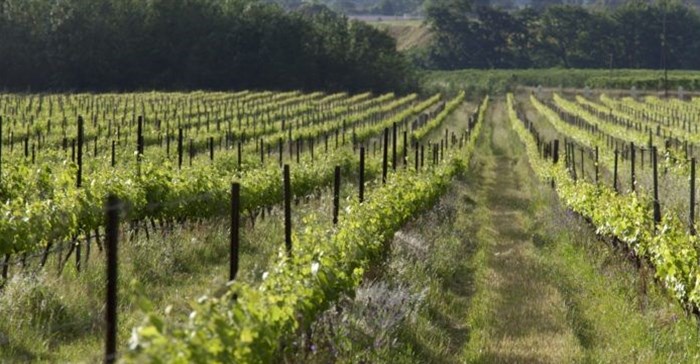
Top stories





Marketing & MediaAds are coming to AI. Does that really have to be such a bad thing?
Ilayaraja Subramanian 1 day

More news
















The terms ‘organic’, ‘biodynamic’ and ‘sustainable’ can be confusing:
Sustainability refers to production that is environmentally responsible in a holistic sense but uses ‘conventional’ chemical regimes that make use of fertilisers, herbicides, fungicides, and insecticides.
Organic wine is produced from organically grown grapes and meets the standard for certification by a recognised organic certification agency. Standards often differ from one country to the next, but all organic wines are produced without the use of chemical pesticides or fertilisers.
Biodynamic wine is made and grown on the principles established by Rudolf Steiner. Biodynamic farming is by default organic, but considers the farm as part of a total living system. This includes the influence of the moon and planets, and the entire interdependent ecosystem of wildlife, natural habitat, vineyards and people.
The South African Wine Industry Information and Systems NPC (SAWIS) defines organic wine as produced from organically grown grapes that meet the standard for certification by one of many recognised organic certification agencies. Organic wine is produced without chemical pesticides or fertilisers. Sulphites are strictly limited and controlled globally, but in certain countries, organic wine must be produced without the added use of sulphites.
The major point of difference is the reaction to outbreaks of disease and pests. With traditional chemical farming, a list of registered approved products is available to salvage the situation, whereas organic certifications forbid the use of any chemical pesticides, fungicides, and herbicides. Therefore, the organic biodynamic producer has to consider the fundamental causes and address these.
“Chemical regimes are like a sticking plaster, covering up the issue instead of addressing the root cause. When using an organic and biodynamic approach to farming, you learn from nature to build the natural ecosystem which reduces the need for chemicals.”
According to SAWIS, there is no difference between the primary production techniques for making wine. There are however certain products not allowed in the production of certified organic wines, as well as specified secondary wine manipulation techniques and processes.
“There are certain practices that are restricted and not allowed, such as the addition of nitrogen in the fermentation process. Adding yeast, natural enzymes and sulphur is allowed, but sulphur levels are strictly controlled,” explains Avondale Wine’s proprietor, Johnathan Grieve. “We believe in making slow natural wines in a process using natural fermentation, no additives, and extremely low sulphite levels.”
In South Africa, a certification seal appears on containers of wine or brandy certified by the Wine and Spirit Board (WSB), serving as a guarantee of origin, vintage, and variety as stated on the label. This certification applies to all wines, including organic. Even if farms produce wine organically, only those certified by an internationally accredited body are entitled to label their wines as ‘organic’.
Certification will depend on the particular export market. If you are selling in the EU, EU organic standards are required and the United States Department of Agriculture National Organic Programme standards apply in the US. “Avondale wines are certified according to both these standards,” says Grieve.
Organic wine production holds several benefits for the wellbeing of the environment, consumers, and labourers:
• Less chemical usage on grapes.
• Less chemicals for workers to handle.
• Better for the environment.
• Brings life back to the farm.
• Less or no sulphur in wine.
• Growing demand for organic produce.
• Producing nutrient-dense, flavoursome products that are.
• Regulated standards recognised in markets.
• May be a financial risk to the producer if not done correctly.
• Organic producers need to be engaged, believe in the system and have a sound knowledge of nature.
• Can be challenging in regions prone to infestation and infection.
• Organic wines might not fetch significantly better prices.
• Production may result in lower yields due to less control over pests if not managed correctly.
• It takes three years to convert a conventional vineyard to organic.
• Weed control presents the greatest challenge.
• Could be more labour-intensive.
• Farms are subject to regular and lengthy audit inspections.
• Organic requirements differ from country to country.
“If organic production is done correctly, there is no reason for the costs not to be sustainable,” says Grieve. The local organic market is slowly taking off. This is mainly due to certification being expensive. There are a number of producers who are employing organic practices but have not completed the certification process. Organic wines are gaining traction as international consumers favour organic winemaking, in particular for its health benefits and ecological sustainability. Many supermarkets have organic wine sections, with increasingly more consumers seeking out organic wines.

“Do you wish to farm organically because you want to get a premium for your product, or is it because your farm will start living again and produce quality produce, naturally resulting in expressive wines? With the latter reason, the sky’s the limit,” says Grieve.
“To illustrate the potential for the organic wine market, there are certain markets globally that have initiated an active drive to grow their inorganic offering. This had not been pushed by retailers but rather by consumers initially, so much so that one of the main South African markets set the goal to have 20% of its offering organic by 2020. I believe they reached this number by 2016, only two years after having set the goal.” - Ursula Human, Farmbiz
The information provided was compiled courtesy of VinPro, SAWIS, Wines of South Africa, the Integrated Production of Wine and Jonathan Grieve of Avondale Wine.

AgriOrbit is a product of Centurion-based agricultural magazine publisher Plaas Media. Plaas Media is an independent agricultural media house. It is the only South African agricultural media house to offer a true 360-degree media offering to role-players in agriculture. Its entire portfolio is based on sound content of a scientific and semi-scientific nature.
Go to: http://agriorbit.com/